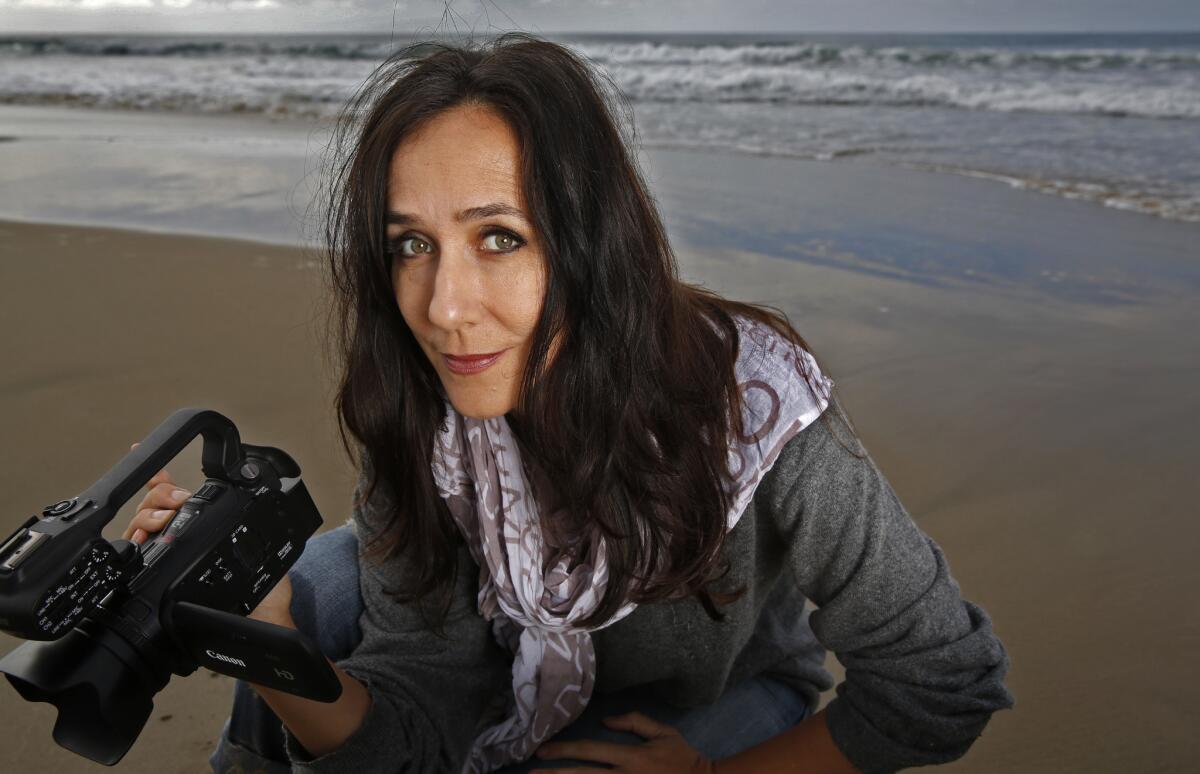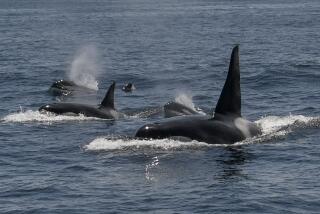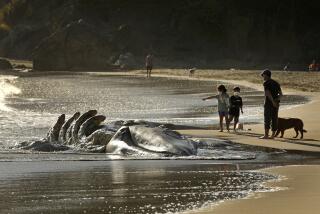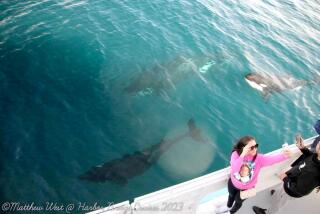Director Gabriela Cowperthwaite gets in deep with ‘Blackfish’

Director Gabriela Cowperthwaite’s riveting documentary “Blackfish” tells the story of Tilikum, an aggressive bull orca who has lived the last 30 years in captivity. The film’s central debate circles around what exactly caused the whale’s behavior linking him to the deaths of three people over the years — natural aggression or the trauma and boredom of captivity? With the death of SeaWorld Orlando trainer Dawn Brancheau in 2010, Cowperthwaite felt compelled to investigate. Through interviews with experts and former SeaWorld trainers, and footage of the animals in the wild and in captivity, the filmmaker puts forth a compelling case for leaving orcas in the wild. She says what she found “stunned me,” adding that several former marine park trainers and veterinarians have told her she was barely scratching the surface after they’d seen the film.
This film is not only fascinating to watch, but it’s a controversial film to make given that SeaWorld’s owner, the Blackstone Group, sees its multibillion-dollar asset as under fire.
Yes, though I didn’t one day decide to make a controversial film. I just had a question. I’m a documentarian, so when I heard about the death of Dawn Brancheau, I wanted to tell a story. I wanted to ask the deeper questions about our relationship with our apex predators on the Earth and why we always want to confront them, and what it is in us that wants to master them. It was more from a trainer’s perspective. I didn’t find out about the whale welfare perspective until much later. In fact I backed into it.
How worried were you about pushback from SeaWorld?
By the time I realized it was a controversial documentary, I was terrified. Absolutely. But by that time, I knew. I knew. And as soon as I learned the truth, my mission was to tell it. By that time you’re in deep, and you have no choice; you’re not just going to run away from it. Was I terrified? Absolutely. Not because I thought they had anything on me, because I knew they didn’t, but a company with that much money could challenge you just for the fun of it. And clean out my bank account in a day.
Have you been surprised by how quiet SeaWorld has been, after declining to participate in the film?
They’ve been able to create and spend endlessly on one of the most powerful marketing campaigns ever regarding the captivity and entertainment use of orcas — they not only controlled the message but really they had the only message out there. We all believed the Happy Shamu myth. So why now would they engage with an independent documentary being made by an un-famous filmmaker? Why would they break their 40-year silence and acknowledge any challenges?
TIMELINE: The Academy Awards through the years
Have you or your distributors helped support this public groundswell as a result of “Blackfish”?
It’s happening all on its own. Watching all these teenagers and young people tweeting about this, you can just see. I keep calling them the “I-can’t-believe-we-used-to-do-that generation,” because that’s been the spirit of their strong reaction: “How have we been complicit in this for so long? And what can we do to change this?” I think we’re moving to a place where if SeaWorld doesn’t make the conscious decision to evolve out of animal “trainer-tainment” they will be a relic and artifact.
How do they evolve?
The first step is to stop the breeding program, otherwise we are going to have killer whales in captivity for the next 100 years. I advocate for the sanctuary sea model. You can’t just dump these mammals back into the ocean. They don’t know how to hunt; their teeth are broken from biting on steel gates, so they wouldn’t last very long. But you can return them to the ocean and have a controlled environment like a cordoned-off cove with a net as a sanctuary, and they could feel for the first time the natural rhythm of the ocean and have infinite environmental stimulation and be able to be killer whales for the first time.
More to Read
Only good movies
Get the Indie Focus newsletter, Mark Olsen's weekly guide to the world of cinema.
You may occasionally receive promotional content from the Los Angeles Times.






